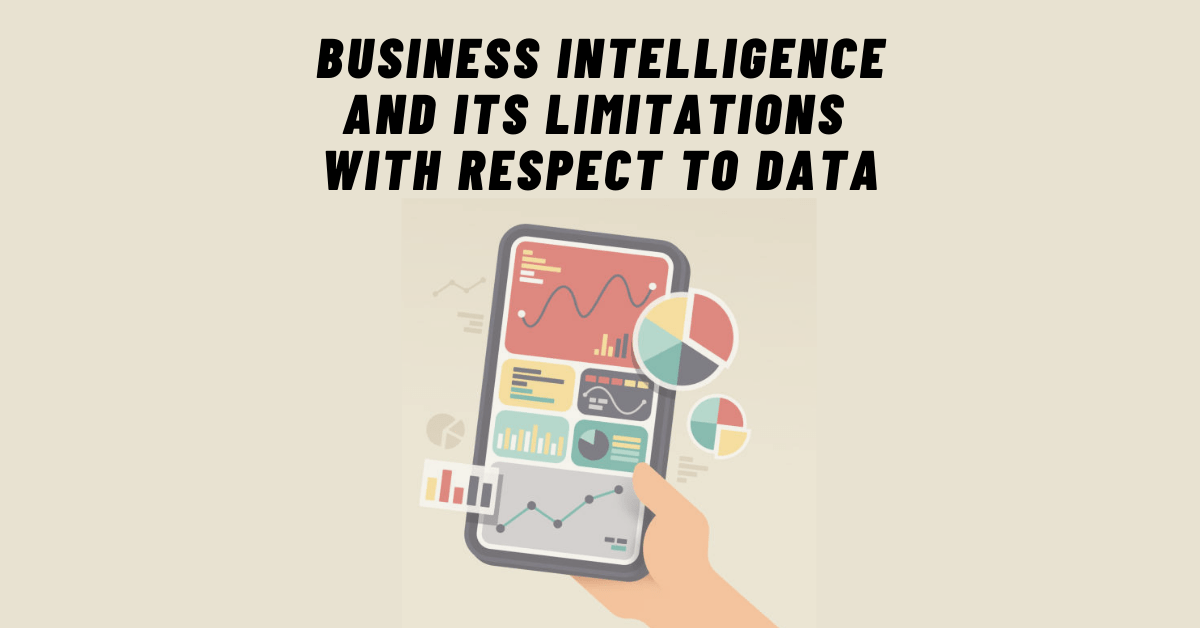We all know that we live in the age of intelligent machines and that spotting upcoming technologies and digital advances does not require the skills of Sherlock Holmes. According to Statista, by the end of 2021, worldwide eCommerce sales will have surpassed 4.9 trillion dollars. Financial industries must have strategies to thrive in this competitive economy. The popularity of internet enterprises is growing, and the competition among them is fierce. Business Intelligence is a process driven by technology and it is proving to be a major addition to a company’s capabilities.
What is Business Intelligence (BI)?
Business intelligence, according to Wikipedia, “includes the strategies and technologies employed by businesses for the analysis of business data.” BI technologies give historical, present, and predictive perspectives of company operations.” This definition focuses on the ‘how’ of business intelligence instead of the ‘what.’ Business Intelligence converts data into a collection of information called “intelligence.” A business or organization can utilize the intelligence to make choices, improve processes, gain insights into the functioning and predict future trends.
Limitation of Business Intelligence
Data Breaches in Business Intelligence
The possibility of leaks is one of the most serious problems of any data analysis technology. If you utilize BI apps to manage sensitive data, an error in the process might disclose your data, putting your company, customers, or workers at risk.
The considerable difficulty faced in BI, according to more than 30% of surveyed organizations, is security. However, because of the widespread nature of the problem, many BI providers are taking it seriously and will implement effective security measures. One should always examine the security choices of different applications and providers while comparing them. It is also a good idea to be selective about the data your BI has access to.
Cost of BI
For small and medium-sized businesses, business intelligence might be a little too much. Even companies that use mobile or cloud-based solutions for their BI applications may suffer from data management expenses. There are numerous suppliers in the business intelligence market, and their software as a service might be extremely different from one another. Neither every supplier nor every product has transparent pricing. Add in the data overages or premium services.
Difficulty Explaining Different Data Sources
From the same data, different people may draw different conclusions. BI apps provide consistent data analyses. The inconsistency that results from the human decision-making process is something that business intelligence must address. Different people will see two very different results when they look at the data cloud, which implies an organization must spend effort identifying a medium ground.
Data of Poor Quality
You have more information at hand than ever before in the digital era, yet this can be problematic. Commercial settings can become much more muddled as a result of Business Intelligence. Due to the abundance of data, most of what your BI tools examine may be useless or unhelpful, therefore muddying findings and delaying operations.
Resistance to Adoption in BI
Not all of BI’s limitations are related to the software. One of the most significant obstacles to BI adoption is the unwillingness of workers or departments to integrate it into their daily operations. These solutions will not be as effective if your firm does not implement them across all departments.
Availability issue
Most businesses now have access to business intelligence, but not every industry has it. Some are only now beginning to see the value that BI apps can bring. Others have been effectively handling their large data for decades. This drawback will not affect every firm, but those that do may face limited supply for some time.
How to deal with them?
- Always evaluate the security choices of different applications and providers while comparing them. It’s also a good idea to be selective about the data your BI has access to.
- By selecting self-service BI tools over a more traditional system, you may save money. These technologies will save you money on IT support and reduce the time it takes to deploy or change your business intelligence.
- You can adopt a data quality control program to avoid bad data. It is also beneficial to use key performance indicators that are specific to your needs and goals.
- You can make it easier for your employees to adopt BI by making it easy to integrate. Your software will be more likely to be adopted if it is user-friendly and everyone knows its benefits.
- You can look for an all-in-one BI software that has features you can utilize or separate solutions like data connectors to bring all of your data sources together.
Conclusion
In conclusion, every new technology will have certain limitations, and business intelligence is no different. If you choose and implement Business Intelligence carefully, the benefits will far outweigh any costs.




